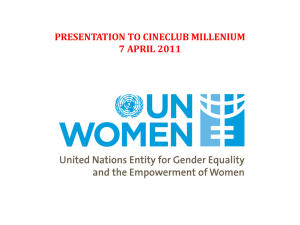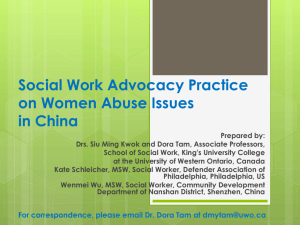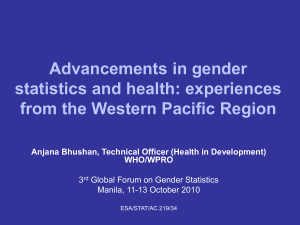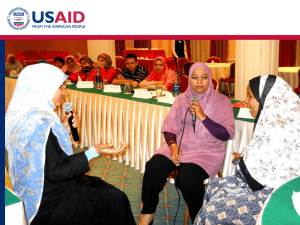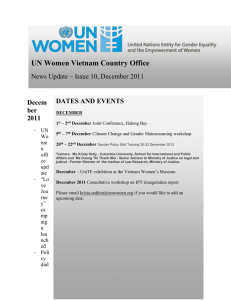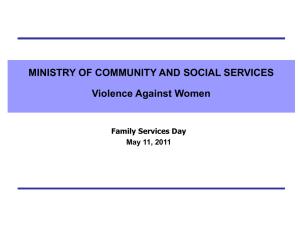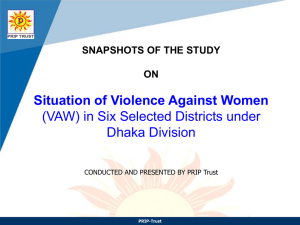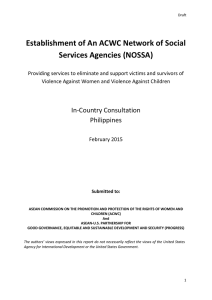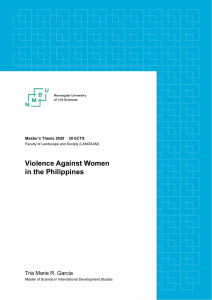Data for actions,
advertisement
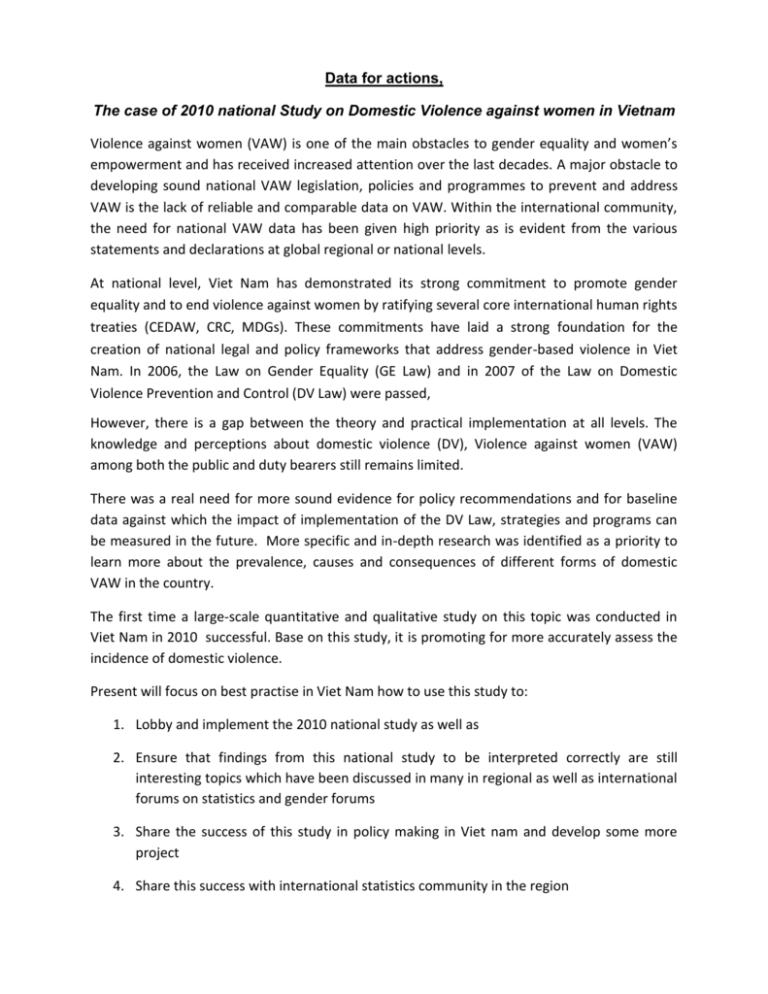
Data for actions, The case of 2010 national Study on Domestic Violence against women in Vietnam Violence against women (VAW) is one of the main obstacles to gender equality and women’s empowerment and has received increased attention over the last decades. A major obstacle to developing sound national VAW legislation, policies and programmes to prevent and address VAW is the lack of reliable and comparable data on VAW. Within the international community, the need for national VAW data has been given high priority as is evident from the various statements and declarations at global regional or national levels. At national level, Viet Nam has demonstrated its strong commitment to promote gender equality and to end violence against women by ratifying several core international human rights treaties (CEDAW, CRC, MDGs). These commitments have laid a strong foundation for the creation of national legal and policy frameworks that address gender-based violence in Viet Nam. In 2006, the Law on Gender Equality (GE Law) and in 2007 of the Law on Domestic Violence Prevention and Control (DV Law) were passed, However, there is a gap between the theory and practical implementation at all levels. The knowledge and perceptions about domestic violence (DV), Violence against women (VAW) among both the public and duty bearers still remains limited. There was a real need for more sound evidence for policy recommendations and for baseline data against which the impact of implementation of the DV Law, strategies and programs can be measured in the future. More specific and in-depth research was identified as a priority to learn more about the prevalence, causes and consequences of different forms of domestic VAW in the country. The first time a large-scale quantitative and qualitative study on this topic was conducted in Viet Nam in 2010 successful. Base on this study, it is promoting for more accurately assess the incidence of domestic violence. Present will focus on best practise in Viet Nam how to use this study to: 1. Lobby and implement the 2010 national study as well as 2. Ensure that findings from this national study to be interpreted correctly are still interesting topics which have been discussed in many in regional as well as international forums on statistics and gender forums 3. Share the success of this study in policy making in Viet nam and develop some more project 4. Share this success with international statistics community in the region
